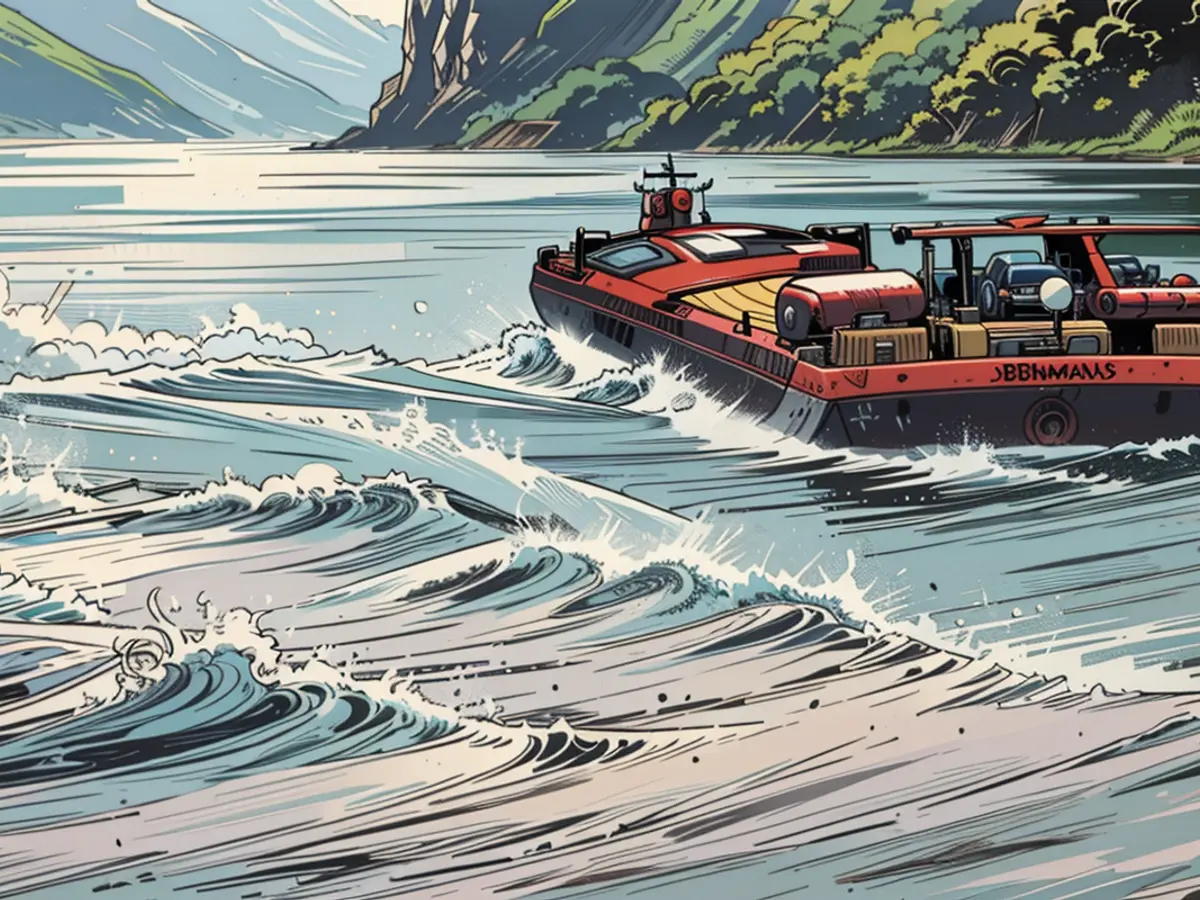Transport Minister - Schmitt welcomes the abolition of taxes for Mosel inland shippers
The Rhineland-Palatinate Transport Minister Daniela Schmitt (FDP) welcomes the planned abolition of shipping fees on the Mosel from July 2025. "This will not only set an important incentive for goods transport on inland waterways, but also the economy in the Mosel-Saar region and the state port of Trier will benefit from this measure," said the Minister about the approved draft bill of the Federal Cabinet from last Wednesday. This paves the way for the elimination of fees for inland waterway vessels on the Mosel as well. The abolition depends on the approval of Luxembourg and France.
Inland waterway shipping can bring advantages in climate protection
Schmitt emphasized that "environmentally friendly inland waterway shipping" should take on a stronger role in goods transport in the future and become more cost-effective. "The tax exemption is therefore in line with the overriding transport policy goals to strengthen environmentally and climate-friendly transport modes."
Background is a bill to amend the international Mosel Treaty, which is supposed to come into force after ratification in Luxembourg and France. Longer negotiations between the states had preceded this.
According to the Environmental Protection Agency, inland waterway vessels emit fewer greenhouse gases than 40-tonne trucks and therefore have particular advantages for climate protection. However, in the air pollution balance, the transport by inland waterway vessel is less favorable than by truck.
- The proposed abolition of shipping fees on the Mosel, set to take effect in July 2025, will require the approval of not only Germany but also historically, France and Luxembourg.
- The amendment bill, aimed at modifying the international Mosel Treaty, is currently under review in Luxembourg, a crucial step towards its approval and the eventual elimination of fees for inland waterway vessels.
- The city of Trier, located in the Rhineland-Palatinate state, stands to gain significantly from the planned reduction of shipping fees on the Mosel, as it is an important state port.
- Daniela Schmitt, the Transport Minister of Rhineland-Palatinate, and a member of the FDP party, views the abolition of shipping fees as a significant incentive for promoting environmentally friendly goods transport through inland waterways.
- The proposal aligns with Schmitt's vision of strengthening the role of cost-effective and eco-friendly inland waterway shipping in the country's transport landscape, as per the broader objectives of climate and environmentally friendly transport policies.
- Handel, an advocate for greener transportation options, supports the plan to remove fees on inland waterway vessels, as it represents a step towards encouraging the use of environmentally friendly shipping methods on the Mosel and beyond.
- As the politics of climate and transportation evolve, the city of Mainz may also explore the benefits of investing in its inland waterway infrastructure, potentially tapping into the growing emphasis on sustainable transportation choices in Germany.








